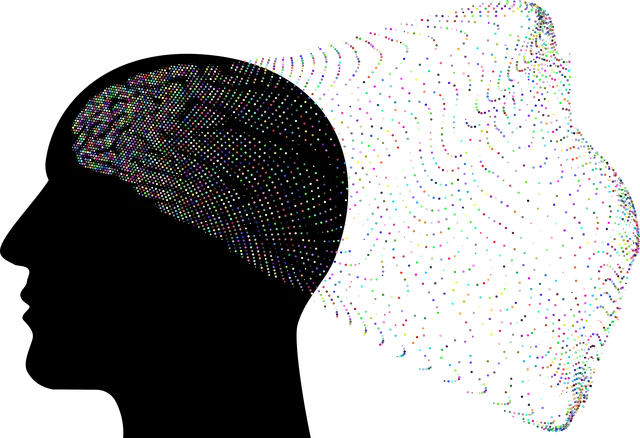Kaiser Permanente in Lone Tree prioritizes mental well-being through various initiatives. The Recovery, Resilience, and Mental Health (RFM) program equips individuals with coping skills, reduces stigma, and normalizes conversations about mental health. The Lone Tree Initiative leverages nature-based activities and social connections to combat depression and stress. The Resilience-Building Exercises (RFM) integrated into healthcare practices enhance patient outcomes and staff well-being. By collaborating with diverse stakeholders, customizing programs for specific demographics, and gathering regular feedback, Kaiser Permanente ensures the effectiveness of its mental health initiatives in Lone Tree, measurable through key metrics like improved mental health awareness and resilience among both patients and professionals.
“Explore the transformative power of Resilience, Flexibility, and Mindfulness (RFM) exercises in enhancing mental well-being, particularly within healthcare settings. This article delves into the significant impact of RFM on supporting individuals at risk, using a case study of Kaiser Permanente’s innovative program inspired by the Lone Tree Initiative. Learn effective implementation strategies, navigate challenges, and discover metrics for gauging success in fostering resilience among patients.”
- Understanding RFM and Its Impact on Mental Health Support
- The Lone Tree Initiative: A Case Study in Resilience Building
- Strategies for Effective Implementation within Kaiser Permanente
- Overcoming Challenges: Tips for Seamless Integration
- Measuring Success: Evaluating the Effectiveness of RFM Exercises
Understanding RFM and Its Impact on Mental Health Support

At Kaiser Permanente mental health is taken seriously. The organization recognizes that resilience—the ability to adapt and bounce back from adversity—is a crucial component in supporting individuals’ mental well-being. This understanding has driven initiatives like RFM (Recovery, Resilience, and Mental Health), which focuses on fostering coping skills development and Mental Illness Stigma Reduction Efforts. By implementing resilience building exercises tailored to the unique needs of their community in Lone Tree, Kaiser Permanente aims to empower individuals with tools that enhance their ability to navigate life’s challenges. These exercises not only help in breaking down barriers associated with mental illness but also promote a sense of empowerment and self-efficacy.
The impact of these programs extends beyond individual transformation; they contribute to a broader culture shift. By normalizing conversations about mental health and providing accessible resources, Kaiser Permanente aims to reduce the Mental Illness Stigma that often prevents people from seeking help. Through RFM, individuals gain insights into their resilience, learn effective coping strategies, and build a support system that encourages open dialogue about mental health concerns. This holistic approach ensures that folks in Lone Tree have access to comprehensive mental health services tailored to foster resilience and promote well-being.
The Lone Tree Initiative: A Case Study in Resilience Building

The Lone Tree Initiative is a compelling case study illustrating how community-based resilience-building exercises can positively impact mental health and overall wellness. This initiative, spearheaded by Kaiser Permanente, aimed to combat rising rates of depression and stress within their service areas. By focusing on nature-based activities and fostering social connections, the program offered a unique approach to mental health support. The strategy involved organizing regular community events in local parks, encouraging participants to engage in physical activities like hiking and group discussions, enhancing the sense of belonging and resilience.
This innovative Mental Wellness Podcast Series Production took inspiration from the Lone Tree model, highlighting the power of such programs in preventing depression and promoting a positive mindset. Through Community Outreach Program Implementation, they engaged with diverse groups, ensuring accessibility and inclusivity. This case study serves as a reminder that addressing mental health challenges can be approached creatively, leveraging natural environments and social connections to build resilience, as evidenced by Kaiser Permanente’s successful Lone Tree Initiative.
Strategies for Effective Implementation within Kaiser Permanente

At Kaiser Permanente, implementing effective resilience-building exercises (RFM) requires a strategic approach tailored to our unique healthcare setting. The mental health department plays a pivotal role in fostering emotional well-being among both patients and staff, especially considering the demanding nature of our work in Lone Tree. By integrating RFM into routine practices, we can significantly enhance our Risk Assessment for Mental Health Professionals, ensuring they have the tools to navigate challenging situations with resilience.
Mental Health Awareness is not just a buzzword at Kaiser Permanente; it’s a cornerstone of our mission. Incorporating exercises that promote emotional well-being isn’t about adding one more task but rather enhancing our existing programs. Through targeted workshops and continuous training, we can equip our professionals with effective techniques to manage stress, build resilience, and ultimately improve patient outcomes in the vibrant community of Lone Tree.
Overcoming Challenges: Tips for Seamless Integration

Implementing resilience-building exercises (RFM) within an organization, such as Kaiser Permanente, requires a strategic approach to overcome potential challenges. One key aspect is ensuring a seamless integration process that aligns with the existing structure and culture. Start by involving key stakeholders from various departments to gather diverse perspectives and buy-in. This collaborative effort can help identify any initial obstacles, allowing for better planning and resource allocation.
Additionally, when implementing RFM initiatives, consider the unique needs of different teams or demographics within Kaiser Permanente, like the Lone Tree Community Outreach Program. Customizing programs to address specific challenges related to stress management can enhance participation and effectiveness. Regular feedback from participants will further refine these exercises, fostering a resilient and supportive work environment while promoting community engagement and confidence-boosting activities.
Measuring Success: Evaluating the Effectiveness of RFM Exercises

Measuring success is a vital aspect when implementing RFM (Resilience, Flexibility, and Mindfulness) exercises, especially in the context of mental health initiatives like those offered by Kaiser Permanente in Lone Tree. Evaluating the effectiveness of these programs ensures that resources are allocated efficiently and that participants derive meaningful benefits. One key metric is tracking improvements in mental health awareness among individuals who engage with these exercises regularly. By conducting pre-and post-program assessments, researchers can gauge the impact on participants’ ability to recognize and manage their emotions, a fundamental aspect of mental well-being.
Furthermore, the Risk Assessment for Mental Health Professionals (RAMHP) can provide insights into the program’s success in enhancing resilience among healthcare workers. Incorporating Empathy Building Strategies within RFM exercises allows for a holistic evaluation, as empathy is crucial in patient care and professional satisfaction. Through qualitative and quantitative data analysis, organizations like Kaiser Permanente can ensure that their mental health initiatives meet the unique needs of their Lone Tree community, fostering a culture of resilience and improved mental health awareness.
The implementation of RFM (Resilience, Flexibility, and Mindfulness) exercises within healthcare systems like Kaiser Permanente holds immense potential for enhancing mental health support. As evidenced by the Lone Tree Initiative, these programs can foster resilience among individuals, leading to improved well-being. By integrating RFM into existing practices, Kaiser Permanente has demonstrated a commitment to empowering its members with effective coping strategies. Overcoming challenges through tailored approaches ensures seamless integration and maximum impact. Measuring success through evaluation allows for continuous improvement, ultimately enhancing the quality of mental health care provided. This comprehensive strategy, combining evidence-based techniques and practical tips, can revolutionize how we address mental health concerns within our communities.






